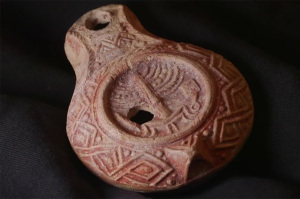Rare Cyclops Shark Discovered by Fishermen (VIDEO)
An extraordinary cyclops shark has been found in Mexico with one eye right in the center of its face. Found earlier this summer, the under-the sea miracle was discovered by a fisherman in the Gulf of California.
Fisherman Enrique Lucero Leon discovered the highly uncommon embryo inside a pregnant dusky shark he legally caught. The Cyclops shark was determined to have a developmental abnormality known as "cyclopia," in which only one eye develops. Through the examination of shark researchers, it is confirmed that the preserved creature's eye is comprised of optical tissue.
However, underwater experts say it’s unlikely that the rare creature would have survived outside the womb.
"This is extremely rare," shark expert Felipe Galvan Magana of Mexico's Centro Interdisciplinario de Ciencias del Mar told the Pisces Fleet Sportfishing blog in July. "As far as I know, less than 50 examples of an abnormality like this have been recorded."
While atypical, the shark is a real development. According to a 1982 Israeli case reported in the British Journal of Ophthalmology, human fetuses are sometimes affected. In that case, a baby girl was born prematurely with no nose and only one eye in the center of her face.
Seth Romans, a spokesperson for Pisces Fleet told LiveScience that the fisherman who caught the strange shark is "amazed and fascinated" by the attention his catch has drawn.
The fisherman is reportedly hanging on to the preserved remains. Dr. Magana, a shark expert at the Interdisciplinary Centre of Marine Science is reportedly on the verge of releasing a scientific paper about the fisherman’s real life fish tale.
Jim Gelsleichter, a shark biologist at the University of North Florida in Jacksonville, told National Geographic that Scientists have documented Cyclops sharks a few times before and the fact that none have been caught outside the womb indicates that cyclops sharks do not live very long in the wild.





























